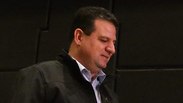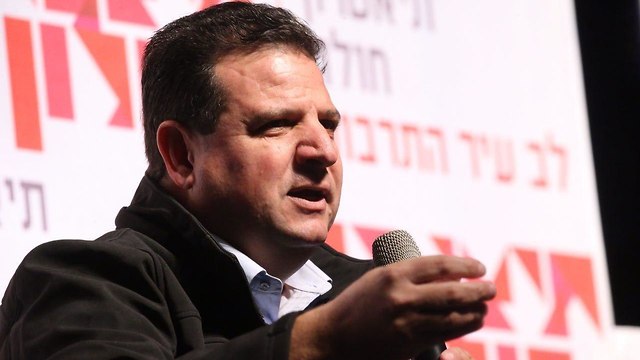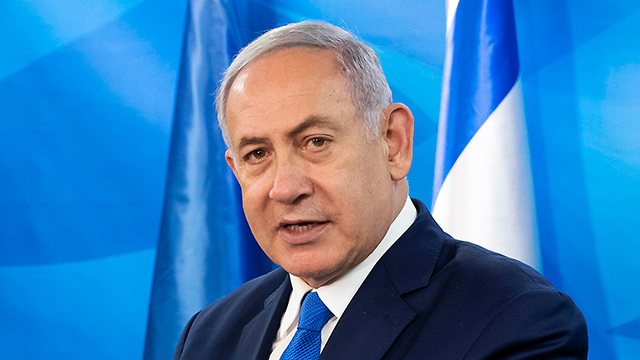
Joint List reclaims Netanyahu's incendiary comment on Arabs voting 'in droves'
Head of Joint List plans to use PM's much-criticized 2015 remark to ramp up turnout among the community in April 9 elections.
Netanyahu's election day message to mobilize his right-wing voter base became a defining moment of the 2015 elections, drawing criticism and accusations of racism from across the globe. Netanyahu, who won the election, later apologized.
Now Ayman Odeh, head of the Joint List, said he plans to use Netanyahu's phrase, which has become an iconic and sometimes ironic part of the language in Israel, to whip up turnout amongst the Arab minority in the April 9 vote.
"Arabs are not going to forget Netanyahu's incitement," Odeh told Reuters. "Netanyahu benefited from the slogan the first time around. Now it is our turn to benefit."
Netanyahu is seeking a fifth term in office. If successful, he will become Israel's longest-serving prime minister.
The party will run the slogan in Arabic and Hebrew, said Odeh, whose faction holds 13 of the 120 Knesset seats.
Israel's Arab citizens, many of whom identify as Palestinian, comprise mainly descendants of the Palestinians who remained in their homes or were internally displaced after 1948 War of Independence that surrounded Israel's creation.
Today they make up just over one-fifth of Israel's population. Although the Arab minority has full equal rights, many say their communities face discrimination and are treated as second-class citizens.
Arab citizens have typically turned out to vote at a rate below the national average, according to the Israel Democracy Institute.
Odeh said that the Arab lawmakers' main task will be to convince potential voters that their participation can effect real change, even if no Arab party has ever joined an Israeli government coalition.
So far polls show Netanyahu's ruling Likud party will be the largest party in parliament with around 30 seats. The Joint List now comprises Hadash, Balad and the United Arab List parties, following Knesset member Ahmad Tibi's request to remove his Arab Movement for Renewal Party from the list.
Odeh said a key campaign issue will be Israel's Nation-State Law passed in 2018. The contentious law defines Israel as the nation-state of the Jewish people and also ends Arabic's status as an official language of Israel, leading critics to claim it is discriminatory against Israel's minorities.
The law angered the Arab minority and Israeli left-wing and center-ground politicians, many of whom opposed its passage in parliament. The bill's supporters said it was largely symbolic and Netanyahu said it was needed to fend of Palestinian challenges to Jewish self-determination.
"I can argue that if we had only voted in greater numbers, we would have been able to block the law," Odeh said. "They simply wouldn't be able to ignore us."












